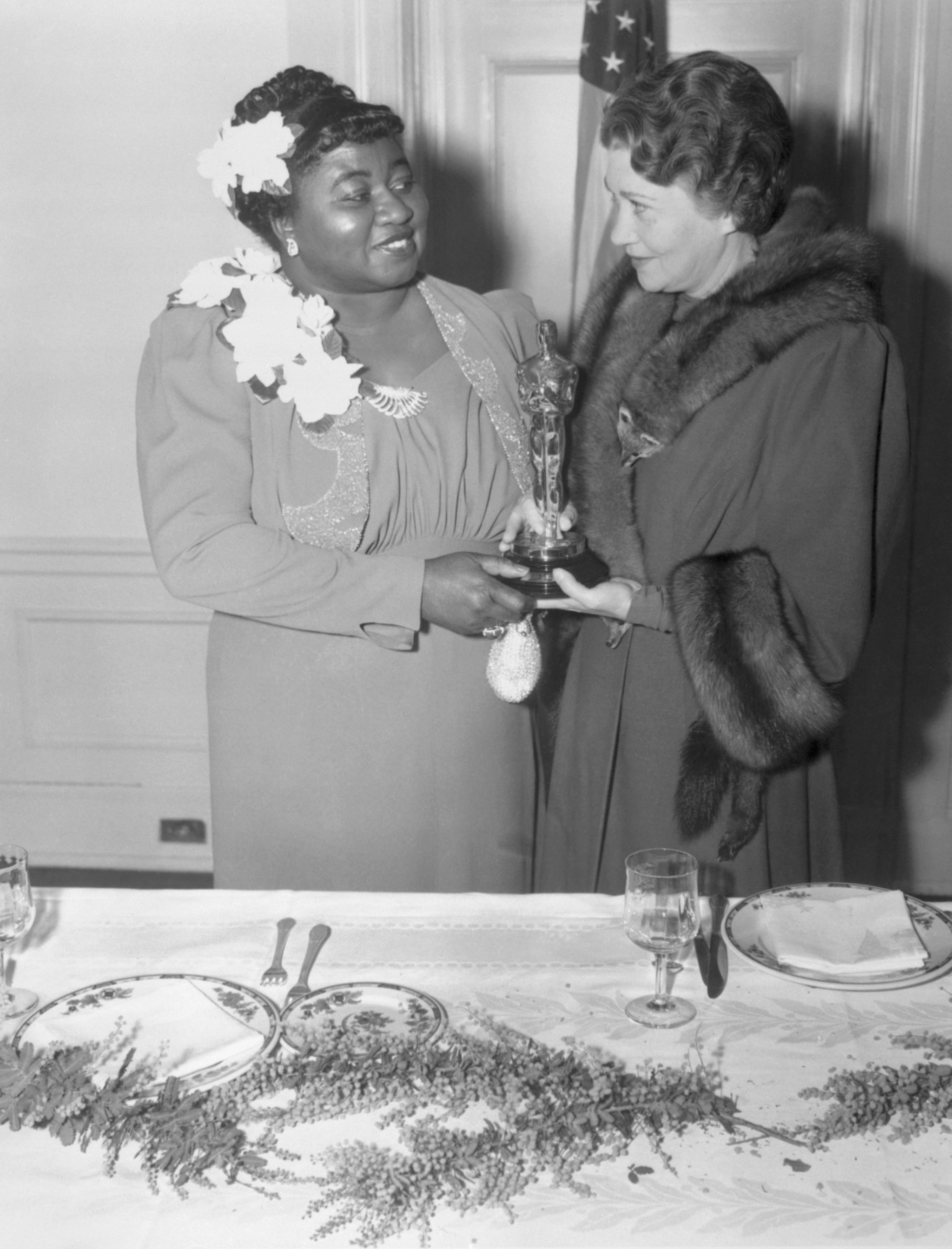
Hollywood [1] on Netflix presents an alternate version of old Hollywood [2], but with some real-life facts sprinkled in [3], such as how Hattie McDaniel was treated when she was nominated for an Oscar in 1940. In the show's version of events, McDaniel is shown being kept out of the ceremony where her white counterparts are seated, despite being a nominee (and eventual winner). So what really happened to McDaniel at the Oscars?
Did Hattie McDaniel Attend the Oscars?
According to The Hollywood Reporter, McDaniel almost wasn't even allowed to attend the Oscars [4] where she would pick up her historic win, despite the fact that a list of the winners had already been leaked, pegging her as a winner. Back in this era, the Oscars weren't held at a major theatre or auditorium; in 1940, they were held at the Cocoanut Grove nightclub, which was part of the Ambassador Hotel. The Ambassador was a whites-only hotel that would not be integrated until 1959, so producer David O. Selznick had to call in favours just for McDaniel to even be allowed to attend the ceremony where she was going to make history.
Even though she was allowed to have a seat, she was not allowed to sit at the Gone with the Wind table with Selznick and her nominated white co-stars Vivien Leigh, Clark Gable, and Olivia de Havilland. Instead, she was seated at a smaller, isolated table far to the side of the room, along with her escort F.P. Yober (a black man) and her (white) agent William Meiklejohn. Still, her win was greeted with emotional cheers, and her acceptance speech went down in Oscar history. "I shall always hold it as a beacon for anything I may be able to do in the future. I sincerely hope that I shall always be a credit to my race and the motion picture industry," she memorably said as she held her award.
How Did Hattie McDaniel Drive Her Own Oscar Campaign?
Ironically, McDaniel had to be the driving force behind her own Oscar nomination. In THR's narrative of her nomination and win, it's revealed that the studio hadn't even originally planned to submit her for Oscar consideration. McDaniel reportedly took matters into her own hands. Armed with a stack of reviews that sang her praises — including reviews from major outlets with white critics — she went to Selznick's office and put the entire stack on his desk. Selznick did submit her for consideration, and she wound up getting a nomination in the supporting actress category, along with de Havilland.
Did Hattie McDaniel's Win Result in Major Changes in Hollywood?
On Hollywood, the trailblazing work [5] of McDaniel and other characters eventually leads to real and lasting change in the movie industry. Reality, however, was much less kind to her. She did work steadily throughout a long career, but she couldn't escape being typecast in "Mammy" roles, with about 75% of her credited roles being some kind of domestic servant. She faced criticism from black activists, including the NAACP, for perpetuating stereotypes, but was unable to get cast as any other character type. Even her historic Oscar itself had an undignified ending: after her death, it was appraised as being worthless, eventually went to Howard University, and went missing in the early 1970s, never to be seen again.
McDaniel's win failed to translate to more and better roles for non-white actors, either, as stereotypes continued to abound and actors of colour continued to be shut out of "Oscar-y" roles. No black actor or actress would win an Oscar in any category again until 1963, when Sidney Poitier won for best actor. Since McDaniel's win, seven black women have won the same award she did for best supporting actress: Whoopi Goldberg, Jennifer Hudson [6], Mo'Nique, Octavia Spencer, Lupita Nyong'o, Viola Davis, and Regina King; there was a 51-year gap between McDaniel's win and the next win (Goldberg's). All that, though, can't take away from her extraordinary achievement.